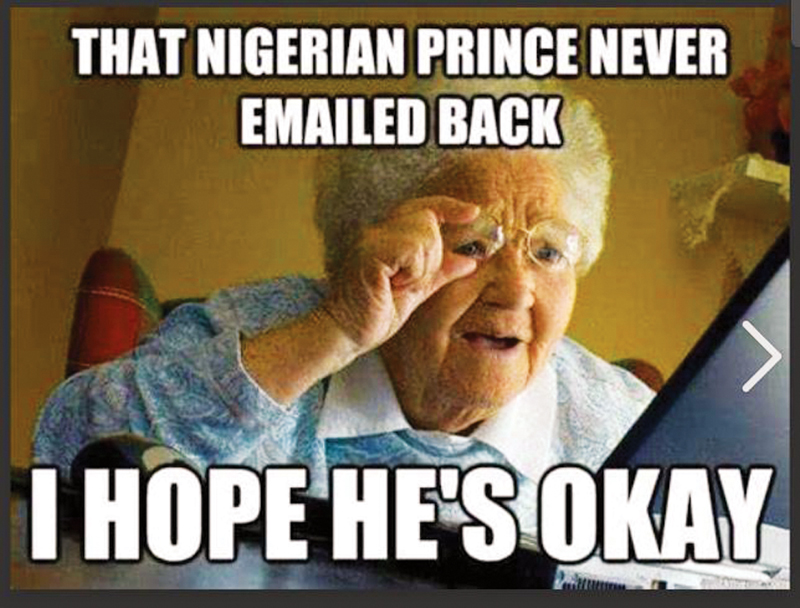Don’t be fooled into losing money through email scams

 (August 3, 2024) — It seems I know an African prince, or at least the Ukrainian executive director of agriculture.
(August 3, 2024) — It seems I know an African prince, or at least the Ukrainian executive director of agriculture.
I was truly impressed because I didn’t know that I was so important to them. But I am and I can prove it.
But before I prove my importance to you, the prince and the director, I want to ask: Are you important, too?
You see, I received an email inviting me to participate in liberating some money locked up in Ukraine. Can you believe it, they chose me to help? How could I refuse when she asked nicely? Besides, I am going to be rich.
This is what she said:
“Hello Beloved,
I know it will be a great surprise reading from me today but consider this as a divine intervention, okay.”
See I told you I was important. In fact, I’m divine.
After that opener, I began to laugh because I knew what was coming next. And, my friends, it came in abundance.
She continued: “I am presently writing you from Ukraine because of the ongoing Crisis between Ukraine and Russia. I want to entrust my money $15.5 million US dollars to your care for safety …”
Not only am I important and divine, I am trustworthy, too.
Nigerian prince scam
This scam is a twist on the Nigerian prince con. One of the oldest fraud schemes in history, it even predates the Internet. According to NordVPN, “The Nigerian prince scam is a phishing (email) attack when swindlers reach out to potential victims and promise a large sum of money in return for some help. Victims are usually asked to make an advance payment or share their personal details to get their reward. The Nigerian prince scam is also known as advance fee fraud or 419 fraud, referring to the Nigerian Criminal Code section dealing with swindling.”
In a nutshell, a supposedly wealthy individual poses as a businessperson in trouble. They need your help because they have temporarily lost access to their money. They may give you a great backstory, appealing to your kindness.
Next comes the drop: If you send them just a token of your gratitude, they will share their wealth with you. Wow, how lucky can a guy get?
After they get your money, usually Bitcoin or some other untraceable currency, they are gone. Vanished.
They want you to believe them. Lines like “Give me your word that you will not betray my trust …” are designed to delay your response time until you can no longer communicate with them.
No one can prevent you from falling for this sob story. If you engage with someone like this, no one can help you. The three-letter institutions we have to protect us, like the FBI, simply can’t save you. And the bank from which you took the money? Tough luck, no help there either.
So, think about it: How important do you feel?
Now go do the right thing and delete unsolicited emails.
If you have doubts about an email you receive, pop-up messages saying you need to buy McAfee antivirus or website information that you don’t recognize, just ask us before you click. It’s free at 925-672-9989.
Email questions or comments to Will Claney at willclaney@gmail.com.

Will Claney
William Claney is an independent tech writer and former owner of Computers USA in the Clayton Station. Email questions or comments to willclaney@gmail.com.
